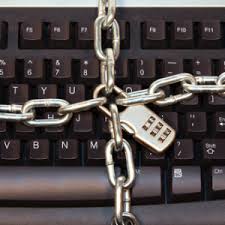Just how many times have you said those two terrifying words while sitting in front of your computer..."OH NO!!!"
Usually uttered when something has gone terribly wrong, like your screen has suddenly gone dark or blank...and you don't think your data has been saved.
Believe it or not, this happens far more often than you think, to professionals in the "IT" biz, as well as the average PC user. Many times, we become complacent in our actions, secure in the knowledge that our automatic "back-up devices" are alive and kicking; therefore, nothing for which to be concerned. Right? Hmmmm....
...I don't even want to begin to tell you how many computer users, right now, think that their automatic back up is turned "ON"...but it's not.
Keeping your computer’s data safe should be a top priority. It can be heart wrenching when you lose all of your work, family photographs, and other data due to a virus attacking your computer or your laptop shutting down unexpectedly. And, if your data gets into the wrong hands, you run the risk of identity theft and fraud. Luckily, by following a few simple procedures whenever you use your computer, you can protect yourself from data loss.
So here is an informative article we recently found with some helpful hints we can all employ to make sure we don't lose that precious information that is technically stored"...
Having up to date anti virus installed is an essential element of protecting your computer from data loss. Make sure to install the latest version of antivirus with a reliable company such as McAfee or Norton. Installing automatic updates for your anti virus software will ensure that your computer is prepared to deal with the latest threats to your data.
Many viruses and malware programs deliberately target your data, either deleting files or attempting to steal bank details and other data that a criminal could potentially use for their own advantage. Some recent malware, known as ‘ransomware’ accesses your computer and encrypts all of your files, before demanding a hefty sum to pay for the hacker to unencrypt them. Up to date anti virus software will protect you against these threats. Installing a strong firewall is also important for preventing hackers from accessing your computer. Checking every now and again that your firewall is turned ‘on’ in your internet options folder or antivirus platform is a good idea, as even some innocent programmes (such as when you install a new piece of software on your computer) can turn the firewall off.
In addition, getting into the habit of backing up your data at regular intervals will also protect you from data loss. Saving your work as you go along (for instance saving each paragraph you type as you write an article in MS Office) is good practice, and will ensure that if your computer turns off suddenly you will not lose great chunks of data. Many programs have an automatic save function: turning this on will cause your computer to automatically save your work (say) every 30 seconds, so that you don’t have to worry about doing that manually yourself. However, it is crucial to have an alternative backup solution.
External hard drives or even simple inexpensive USB sticks can be plugged into your computer, and used as a second location to save your data. Make sure to keep your external hard drive in a safe place, such as a locked drawer or your inner coat pocket! Thus, if your computer is lost, you know that all of your data is stored in another location. Several online platforms exist for saving data securely in a second location. Dropbox and Google docs are two examples of such programmes: here, you can save your photographs, written documents, spreadsheets PDF articles, sound files, and so much more. If your computer loses your data you can log in to Dropbox or Google docs from any device which has the internet and all of your files will be preserved there, waiting for you.
One danger that you cannot always prepare fully for is theft of your laptop or mobile devices. Keeping your devices hidden out of sight, or even in a safe, when you are asleep or out of the house, and having a good security system for your home, is a simple precaution for preventing your data being lost to a thief. Make a note of your computer’s serial number so that if it is stolen, the police will be able to identify it as yours and thus return it to you should they manage to recover it from the thief. It is also possible to fit your computer with tracking software that pinpoints its location. This can be invaluable for recovering lost or stolen items, and many recent computer models have this software ready installed. Password protecting your files, or installing encryption software if you’re feeling adventurous, will also help to protect your data from the average thief.
If, despite these precautions, you have lost your data, there is no need to despair. Looking up
data recovery services will put you in touch with specialists who have a whole host of extra tricks up their sleeve to retrieve all of those precious files and photos!”

